We document best practices, work on capacity building programs and invest in knowledge management. View our publications to learn more.
PUBLICATIONS
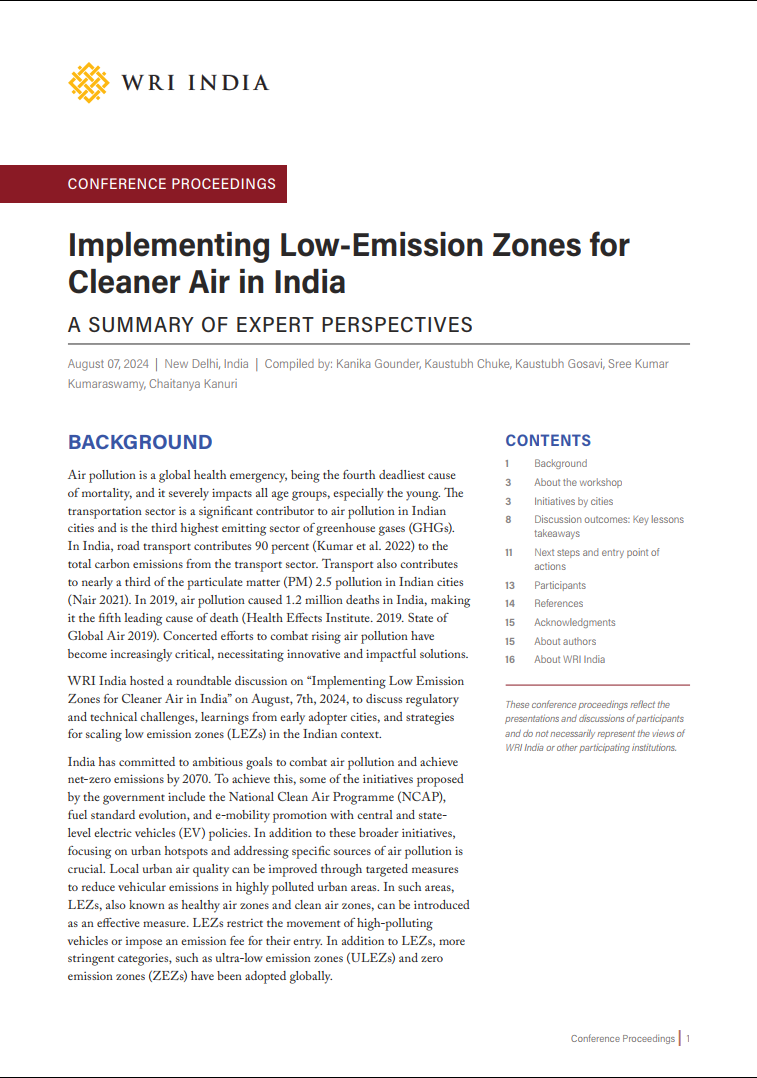
The document outlines the strategies for scaling low emission zones (LEZs), also known as healthy air zones and clean air zones in the Indian context to improve local urban air quality through targeted measures to reduce vehicular emissions in highly polluted urban areas.
Key discussion areas include:
- Policy alignment and engagement: Ensuring sustained…
WRI India and the WRI Ross Center for Sustainable Cities hosted a convening on July 2, 2024, in New Delhi for the Resilient, Equitable Housing, Opportunities and Urban Services (REHOUSE) initiative and partnership, focusing on strategies to enhance climate adaptation, financing, and access to adequate housing integrated with essential urban services for communities in informal settlements. The…
The 'Green Hydrogen Growth: Subnational Dialogue on Catalyzing Change' conference, hosted by WRI India during the 10th India Energy Storage Week highlights the crucial role of states in advancing India’s green hydrogen ecosystem. Featuring insights from key stakeholders across government, industry, and academia, this report explores policy incentives, innovative production pathways, R&D…
The demand for certain critical minerals used in lithium-ion batteries (LIBs) is expected to double by 2030. In India, the adoption of LIBs in electric vehicles and renewable energy projects is at a nascent stage and faces various supply-chain-related challenges. It is, therefore, crucial to integrate circularity into the LIB supply chain to ensure the availability of critical minerals, reduce…
India, the world’s largest tractor market, sold over 10 lakh units tractors in 2022, accounting for 45% of global tractor production. While tractors are indispensable for modern farming, their heavy reliance on diesel contributes significantly to greenhouse gas (GHG) emissions, with agriculture and transportation responsible for 14 and 8.36% to India’s national GHG emissions respectively.…
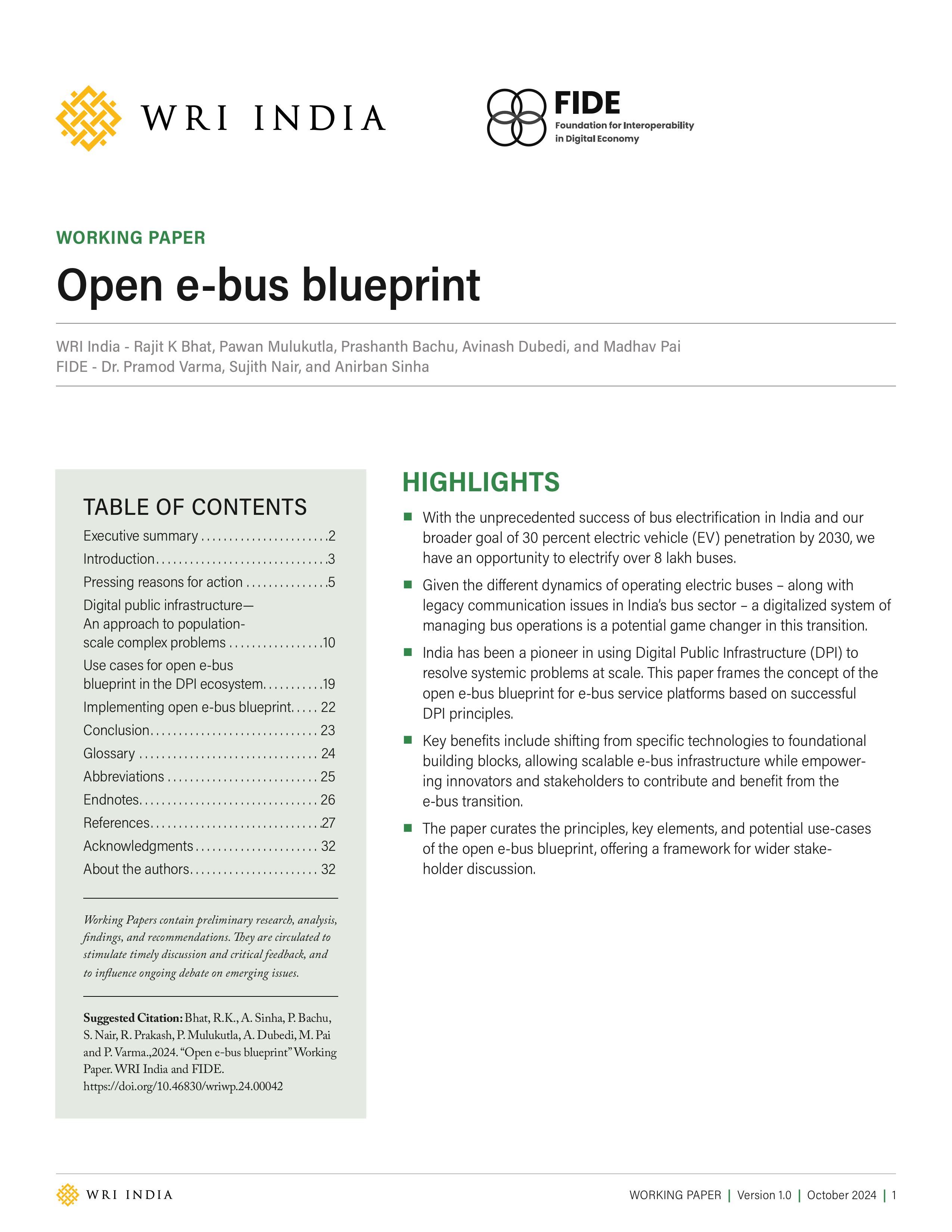
Buses form the backbone of public transportation in India, catering to 39.9 crore (399 million) passengers daily and accounting for over 90% of all public transport trips. As part of a broader goal to reduce transport emissions, India is looking to electrify up to 800,000 buses in the next seven years, including public, private and institutional fleet. Given the different dynamics of operating…
India plans to deploy 50,000-60,000 e-buses in the coming years. As e-bus deployment is a capital-intensive exercise, effective and innovative financing pathways become critical for scaling up India’s e-bus ambitions successfully.
This working paper aims to understand the early-stage challenges in India’s e-bus financing from financier and operator perspectives, drawing from various…
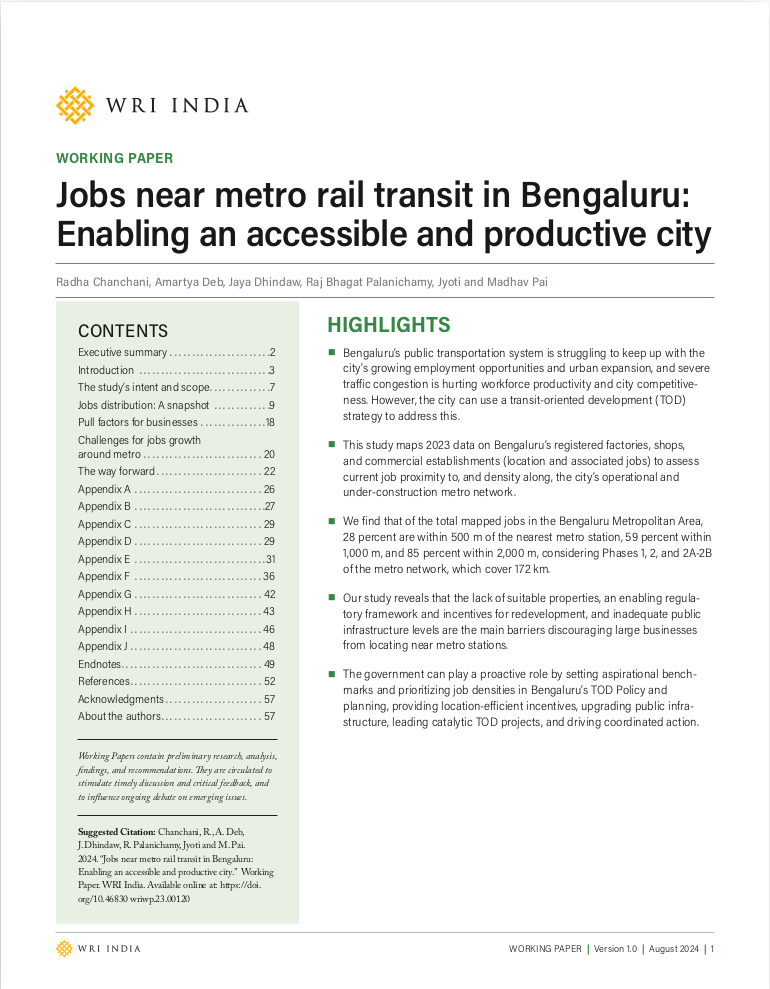
Bengaluru's public transportation system is struggling to keep up with the city's growing employment opportunities and urban expansion, and severe traffic congestion is hurting workforce productivity, livability and competitiveness. This paper highlights the critical need for integrated planning and bringing jobs closer to mass transit through the adoption of transit-oriented development…
The global demand for lithium-ion batteries (LIBs) is expected to increase because of the rising demand for electric vehicles (EVs) and renewable energy. Therefore, effective integration of circularity in the supply chain of LIBs is crucial to secure critical minerals, decrease primary mining demand, and reduce the environmental impact. WRI India hosted a panel discussion titled “Lithium-ion…
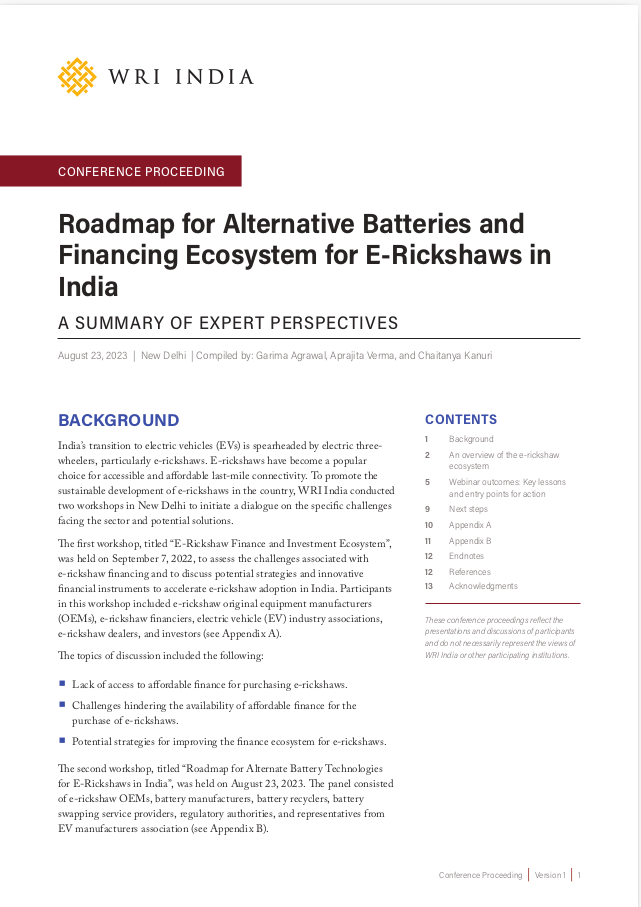
Electric three-wheelers, particularly electric rickshaws, are a crucial mode of affordable and shared mobility in Indian cities, serving over 3 million people in their daily commutes. They are popular both in urban centers and remote areas, providing essential connectivity between small towns and villages.
E-rickshaws contribute significantly to environmental sustainability and…
Pagination
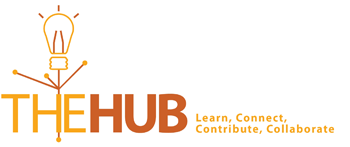
The Hub used to be our online capacity building platform, between 2000-2010, and was meant to facilitate knowledge sharing, peer learning and collaboration. Do click here to view our archived capacity building modules, publications and reports. We have since moved our capacity building to TheCityFix Learn platform – www.thecityfixlearn.org
